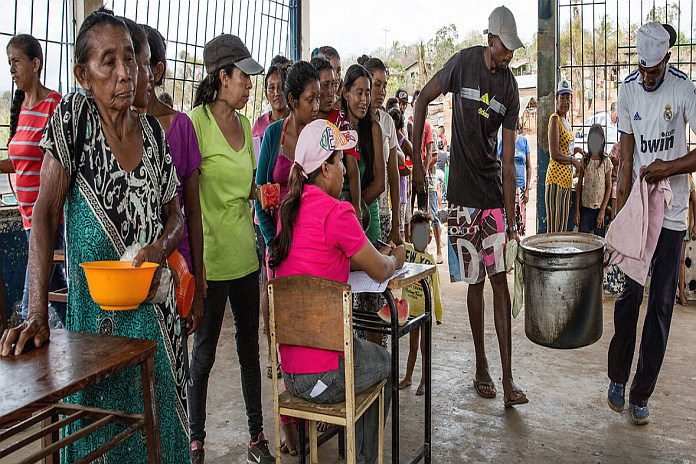CARACAS, Venezuela – Hyperinflation in Venezuela means that roughly one-third of the population – more than nine million people – do not get enough to eat and are in need of assistance, according to estimates published on Tuesday by the World Food Programme (WFP). The finding is based on a Food Security Assessment conducted by the agency at the request of the government between July and September of last year.
“Hyperinflation is affecting the ability of families to secure food and other basic needs,” according to the study. “Fifty-nine percent of households have insufficient income to buy food and 65 percent are unable to buy other essential items such as hygiene products, clothes, and shoes.”
WFP collected data countrywide at the household and community level via more than 8,300 questionnaires, analyzing food consumption patterns, food and livelihood coping strategies, and economic vulnerability.
Results indicate that nearly 18 percent of households or roughly one in five has an unacceptable level of food consumption. Of that number, 12.3 percent were described as borderline, while 5.5. percent have poor food consumption.
Additionally, a lack of dietary diversity indicated inadequate nutritional intake. Families consume cereals, roots or tubers daily, complemented with beans, lentils or other pulses three days a week and dairy products four days a week.
Meanwhile, the overall consumption of meat, fish, eggs, vegetables, and fruits is below three days a week for each of these food groups.
Most families surveyed, or 74 percent, have engaged in food-related coping strategies such as reducing the variety and quality of food they eat. Sixty percent reported reducing portion sizes.
To survive, 33 percent of households have also accepted working for food as payment. Others have sold family assets to cover basic needs, or even spent their savings on food.
“As families deplete the coping mechanisms they have been using to sustain basic food consumption, there are great concerns that nutritional needs will not be met in the short term. This will affect the most vulnerable, including children, pregnant and lactating women, and the elderly.” WFP said.





